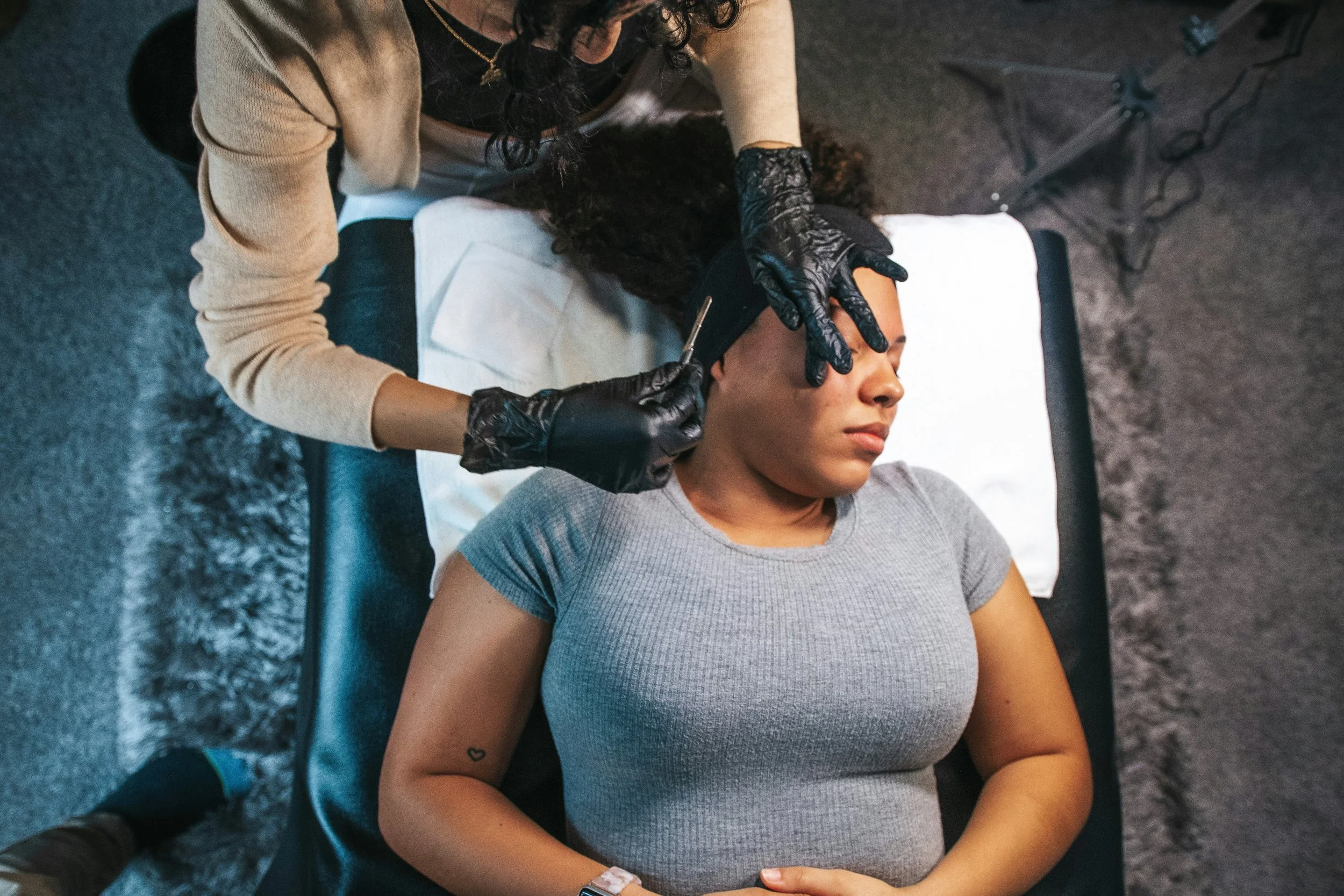Dermaplaning: The Pros & Cons Every Client Should Know
Dermaplaning has quickly become one of the most requested exfoliation treatments in NYC facials, and for good reason. As an esthetician in NYC, I love how it instantly smooths, brightens, and preps the skin for other treatments. However, it’s not suitable for every skin type. Here’s a professional guide to the benefits and considerations of dermaplaning.
The Pros of Dermaplaning
1. Instantly smoother texture
Dermaplaning uses a surgical-grade blade to gently remove dead skin cells and vellus hair (also known as peach fuzz). This leaves skin feeling silky and makeup applying flawlessly.
2. Brighter, more even tone
By removing dull surface buildup, dermaplaning reveals fresh, healthy skin underneath, helping light reflect more evenly.
3. Better product absorption
Without that layer of dead skin and fine hair, serums and moisturizers penetrate more effectively so they can deliver better results.
4. No downtime
Unlike chemical peels or microdermabrasion, dermaplaning is gentle and non-invasive, with no peeling or flaking afterward. Clients often schedule it before events to take advantage of the immediate glow.
The Cons of Dermaplaning
1. Temporary results
Because vellus hair and skin cells naturally grow back, results typically last about 3–4 weeks. This means maintenance treatments are needed to keep the same smooth finish.
2. Not ideal for certain skin conditions
If you have active acne, eczema, or psoriasis, dermaplaning is not recommended as it can cause irritation or spread bacteria.
3. Removing vellus hair may impact skin health
Here’s something not often discussed: vellus hair plays a role in protecting your skin barrier.
It helps shield the acid mantle, the skin’s delicate, protective layer.
It supports a healthy microbiome, the community of good bacteria that keeps your skin balanced.
It offers a subtle physical barrier against environmental debris.
While most people’s skin tolerates its removal well, those with very sensitive skin or compromised barriers may notice more dryness or reactivity after frequent dermaplaning.
My Professional Take
Dermaplaning can be an excellent exfoliation option when performed by a trained esthetician and when your skin is healthy enough to tolerate it. I often recommend it for:
Special events
Clients seeking instant smoothness and glow
Pairing with other treatments for deeper product penetration
But I always evaluate:
Your skin barrier health
Your sensitivity levels
Your lifestyle (sun exposure, skincare routine, frequency of treatments)
That way, we can make sure dermaplaning is a beneficial part of your long-term skin plan, not just a quick fix. I actually recommend dermaplaning less often than other treatments, because chemical peels, for example, do far more than just remove the top layer of skin, they help regenerate new skin, boost collagen, and improve tone and texture at a deeper level. Dermaplaning certainly has its place, but in my opinion, it’s not the most transformative treatment out there.
Final Thought:
If you’re curious about dermaplaning, let’s talk during your next visit. We can discuss your skin goals, check your barrier health, and determine whether this treatment will give you the glow you want, while keeping your skin’s natural defenses strong.
Enhance your skin’s glow with professional dermaplaning and guidance from Millie Esthetics, your trusted esthetician in NYC. From custom facials to advanced exfoliation treatments, we help your skin look and feel its best. Book your NYC facial today.

